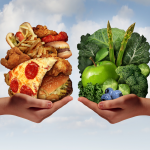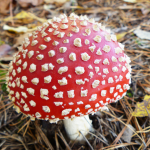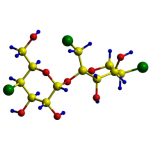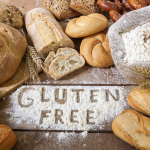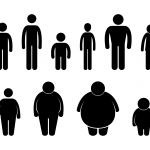How do we get people to make better food choices — to decrease the amounts of calories, fat and sugar in their diets? A new study examined the potential of restricting "unhealthy" food choices vs. incentivizing "healthier" choices, to influence purchasing practices of low-income Americans. The upshot: Both can work, especially in combination.
Food & Nutrition
Many Americans whose BMI puts them in the obese category either don't know it, or assume they're "just overweight." This misperception can lead to fewer consultations with healthcare providers, and less attention to dealing with the issue, according to a recent survey.
The North American Mycological Association keeps records of mushroom poisonings; it reported 67 incidents of human poisoning from mushrooms in 2013. Fortunately, none were lethal. There were also 49 cases of dogs being poisoned, as well as one cat.
For a scientist, a trip to Whole Foods is equal parts amusement and Dante's Inferno. These guys are selling some crazy stuff (along with some damn fine pie).
Age plays a role in how people view food and make food choices, as depicted by a recent survey. In particular, baby boomers and millennials differ as to (1) whom they most trust to advise them about foods, and (2) what health aspects of food they're most concerned about.
Cranberry juice has been promoted for relief of urinary tract infections for decades. But scientists have had trouble providing convincing evidence that it really works. A new attempt to address UTIs in elderly women also fails to provide support. Maybe the best use for cranberries is really an accompaniment to your Thanksgiving feast.
What we eat – as opposed to how much – is a hot topic, and meat consumption is often scrutinized. A study that tracked almost 100,000 Americans for five years found that non-meat eaters were less likely to die – of any cause – during the study period than meat eaters. Now not all studies agree, however, as some show no difference at all in longevity between meat eaters and non-meat eaters.
Flummoxed parents have had many a sleepless night trying to figure out how to get their kids to regularly eat fruits and vegetables. While some will stand firm in their resolve to be convincing, there's another group of parents that believes providing incentives -- critics would call it bribery -- is an effective way to get kids to eat more healthfully.
A recent study found that only about 15 percent of the sweetener sucralose, when consumed in a beverage, is actually absorbed into the blood. Within five days about 93 percent is excreted. Children, because of their smaller size, had significantly higher blood concentrations than adults. But these results don't imply negative health consequences for either group.
Makers of gluten-free food are well aware of two main consumer groups that buy their products: (1) Those who have to for medical reasons, and (2) those who want to because they think they're healthy. But if consumers' misconceptions are not corrected, more and more of them without gluten sensitivities will continue to falsely believe that avoiding gluten is somehow better, and smarter and healthier.
New research supports using so-called traffic light labeling, in addition to numeric labels, to help consumers make healthier food selections. When both types of labels were combined on food items, consumers' choices were based less on taste than they had been when only numeric labels were used.
It's widely believed that a low basal metabolism predisposes a person to weight gain and obesity. And it makes sense since a low BMR can be a substantial part of a sedentary person's energy expenditure. But a recent study couldn't find such a connection, so the old I'm fat because I have a slow metabolism excuse won't hold water, at least according to this study.
